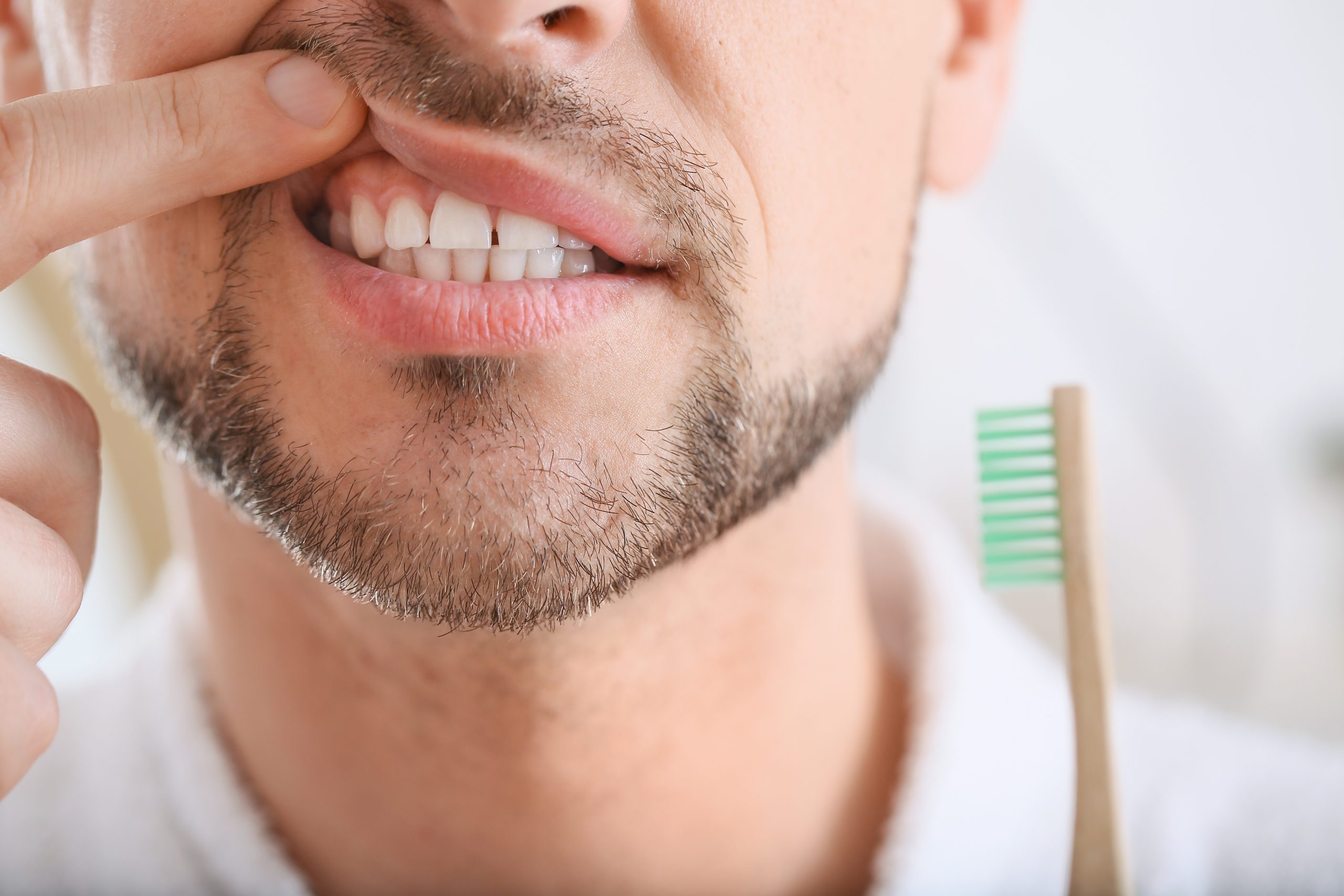Information Library
Start Reading

Occasional, moderate drinking can be part of a healthy lifestyle. Heavy alcohol consumption, however, is associated with several short- and long-term problems. Alcohol can affect the health of your liver, your brain, your blood sugar—and your mouth.
At Penn Dental Medicine (PDM), we find many patients don’t realize just how much alcohol can damage oral health. As part of our mission to help people make healthier decisions, we’ve prepared this overview of the relationship between alcohol and oral health.

Patients often ask, “Is alcohol bad for your teeth?” Alcohol itself does not directly damage your teeth. But it can significantly impact them, as well as your gums and mouth overall.
Among the most immediate links between alcohol and oral health is dry mouth (xerostomia).
Alcohol is a diuretic. It causes the body to produce more urine, which can lead to dehydration. When the body is dehydrated, it produces less saliva, resulting in a dry mouth. Most people experience some degree of dry mouth after they drink.
Furthermore, alcohol can irritate tissues in the mouth and throat, inflaming them and further reducing saliva production. Reduced saliva flow can cause a range of symptoms, including a dry or sticky feeling in the mouth, difficulty swallowing, and a sore throat.
When your saliva flow decreases, fewer bacteria are naturally washed off your enamel (your teeth’s outer, protective layer). This process is one reason high alcohol consumption is associated with a higher incidence of tooth decay.
Does alcohol cause cavities itself? Alcohol metabolizes into sugar, which attracts the bacteria that cause cavities in the enamel. Many cocktails and alcopops use sugary mixers that can coat your teeth’s surface, leading to tooth decay over time. And beer, red wine and white wine, and cider all contain acid that will slowly dissolve enamel, leading to sensitivity or pain.
People with alcohol dependence are at greater risk of tooth decay and loss. Because they have more plaque, heavy drinkers are three times as likely to experience permanent tooth loss.
Heavy alcohol consumption can weaken the immune system, making it harder to fight off such infections as periodontitis, also called gum disease.
Periodontitis is one of the most frequent long-term effects of alcohol on the mouth. It is characterized by bleeding gums, plaque, gum recession, infection, and the development of pockets where the gums pull away from the teeth. Gum disease has been linked to higher incidences of cancer, diabetes, stroke, and heart disease.
A 2015 study in the Journal of Periodontology demonstrated the negative effect alcohol can have on gums. It assessed a sample of 542 nondrinkers, occasional drinkers, and regular users, with and without periodontitis. The study found:
The study showed that even in people who don’t have gum disease, alcohol has a proportional and negative impact on gum health in a variety of ways.

Moderate alcohol consumption is one drink per day for women and no more than two drinks a day for men, according to the Centers for Disease Control and Prevention. This definition is limited to the number of drinks consumed in a single day. It is not intended as an average over several days. The one-drink equivalent is 14 grams (0.6 fl oz.) of pure alcohol.
If you enjoy alcohol, we recommend minimizing alcohol’s dehydration effect by sipping a glass of water in between drinks to replenish your saliva. You should also brush, floss, and use mouthwash after drinking alcohol (or any sugary beverage).
Again, consumed in moderation, alcohol doesn’t have to lead to health problems. But the negative links between alcohol and oral health are additional reasons those dependent on alcohol should seek help. The oral manifestations of alcoholism include not only dry mouth, tooth decay, and gum disease, but also chronic bad breath and a greater risk of oral cancer.
If you’re struggling with gum pain or bleeding, or if you suspect tooth decay, we can help. Make your appointment at PDM online or call 215-898-8965.
To know more about how what you drink and eat affects your oral health, download our free eBook, How Are Nutrition and Oral Health Connected? It’s full of information you can use to maximize nutrition for healthy teeth and gums.